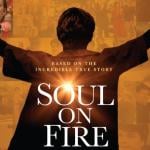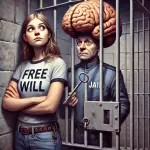
It’s easy if you try
No hell below us
Above us only sky
Imagine all the people living for today
It isn’t hard to do
Nothing to kill or die for
And no religion too
Imagine all the people living life in peace
But I’m not the only one
I hope some day you’ll join us
And the world will be as one
I wonder if you can
No need for greed or hunger
A brotherhood of man
Imagine all the people sharing all the world
But I’m not the only one
I hope some day you’ll join us
And the world will be as one
So wrote John Lennon, in what has become, for some atheists, a kind of anthem.
I argued in a 2012 Deseret News column (“John Lennon was wrong, but right at the same time”) that Imagine is a silly, intellectually shallow song, and I still think so.
However, as many have noted of late — some with delight and others with alarm — more and more Americans are “unchurched,” especially among the relatively young. More and more list their religious affiliation as “none.” And the trend has been accelerating.
More than a few — mostly those who approve of the trend — have sought to explain this change as the natural result of greater information, largely driven by the internet. I confess to being skeptical about such suggestions, partly because I’m involved with young people on a regular basis and haven’t noticed that the current generation is especially well informed.
However, I don’t think that the internet and social media are unrelated to current religious trends. I simply suspect that they’re related in a different way. (More on that in a later post.)
What we’re seeing, in my judgment, is the rise of a certain kind of individualism — arguably, it might even be termed atomistic individualism — that is good in some ways but, arguably, very, very bad in others:
“The Real Reason Religion Is Declining In America: Why the U.S. will eventually resemble Europe”
The fact is that American social connections are undergoing a seismic shift. For example, young people are marrying later, if they marry at all, and are delaying the beginning of families, if they choose to have children at all. Venerable voluntary organizations such as the Freemasons, the Rotary Club, and the Elks have been declining in membership, sometimes sharply. There has also been a trend of decreasing voter turnout in most established democracies since the 1980s, which is commonly attributed to disillusionment, indifference, and/or a sense that one’s vote won’t make any difference.
Here’s a passage from the Wikipedia article on “Voter turnout”:
“Over the last 40 years, voter turnout has been steadily declining in the established democracies. This trend has been significant in the United States, Western Europe, Japan and Latin America. It has been a matter of concern and controversy among political scientists for several decades. During this same period, other forms of political participation have also declined, such as voluntary participation in political parties and the attendance of observers at town meetings. The decline in voting has also accompanied a general decline in civic participation, such as church attendance, membership in professional, fraternal, and student societies, youth groups, and parent-teacher associations.”
In other words, lack of participation in religious organizations, especially by young people, may well have relatively little to do with theology, or with greater scientific literacy (as some have suggested, rather implausibly, since there is small reason to believe that there is a greater knowledge of science among contemporary young people). In fact, it seems unlikely that a decline in religious participation is or can be wholly unrelated to other areas of decreasing social participation.
But is this decline healthy?
I recently read a thought-provoking article titled “Alienation Is Killing Americans and Japanese.”
What the article has to say connects, in my mind, with the classic 1985 sociological study Habits of the Heart: Individualism and Commitment in American Life (by Robert N. BellahBowling Alone: The Collapse and Revival of American Community, by Robert D. Putnam.
These are waters in which I’ve been dipping my toe for some time now, off and on. See, for example, my 2013 Deseret News column “Faith and family depend upon each other,” which treats the work of Mary Eberstadt, as well as my remarks about a month and a half ago at the August 2017 FairMormon conference (“What Difference Does It Make?”).
The evidence seems clear that religious participation is a powerful factor for overall psychosocial health.
“So,” asks Mary Eberstadt in her book How the West Really Lost God, “is it in society’s interest to encourage Christian practice?” She then provides her own response. “The answer is: only so far as it is in society’s interest to encourage quality of life, enhanced health, happiness, coping, less crime, less depression, and other such benefits associated with religious involvement.”
And the negative consequences of declining religious participation, if the trend in that direction continues, may impact more than merely individual flourishing:
Yesterday, I posted a link to an article in USA Today indicating that “Faith groups provide the bulk of disaster recovery, in coordination with FEMA.” If such faith groups were to go away or be significantly weakened, that would affect the ability of many to recover from natural disasters.












